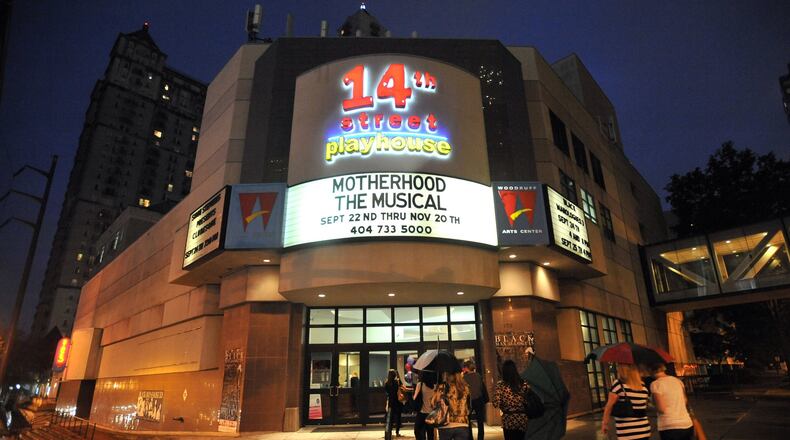The Woodruff Arts Center has sold its 14th Street Playhouse to the Savannah College of Art and Design (SCAD) for $1.9 million, but does not plan to pocket the proceeds.
SCAD will transform the three-stage facility at 14th and Juniper streets in Midtown for use by its new film and television master's degree programs, according to a joint announcement Thursday.
The Woodruff, which received the facility as a donation nearly two and a half decades ago, said it intends to return the gift to Atlanta’s arts community.
The arts center plans to donate $1 million to the Community Foundation for Greater Atlanta to create a fund serving metro performing arts organizations. To be rolled out in late 2014, it will provide grants to nonprofit groups and venues to help offset performance space rental costs.
The Woodruff also will invest the estimated $750,000 remaining after legal and other fees are paid to seed outreach programs to artists of various disciplines.
President and CEO Virginia Hepner admitted that as tempting as it was to ponder how nearly $2 million might help address myriad needs of the Midtown arts center, the donations “just felt like it was the right thing to do.” When she broached the matter with Woodruff board leaders, she said, “They all thought it was a great idea.”
Meanwhile, SCAD’s footprint continues to grow across Atlanta, with film and TV studies a driving force. The college opened a 60,000-square-foot Digital Media Center near its south Buckhead headquarters, in the former home of WXIA-TV, in 2009. It also maintains a residence hall and sculpture studio on the Woodruff campus.
The 14th Street Playhouse will become home to SCAD student productions, guest lectures and community programming. The college's first major event there will be aTVfest, Feb. 6-8, an annual international gathering that draws professionals from various areas of content production to discuss industry trends and showcase top work.
SCAD, which has offered degrees in film and television since 1983, launched M.A. and M.F.A. programs in those areas in fall 2013. Nearly 500 students are enrolled in SCAD film and television programs.
“As Atlanta has grown to become the ninth-largest media market in the U.S., our Midtown location has proved to offer a substantial and reciprocal benefit — both for our students and for the creative industries they are preparing to join,” SCAD President Paula Wallace said in an email to The Atlanta Journal-Constitution.
She said SCAD’s purchase of the Playhouse was not spurred by the Georgia tax incentives that have put the state on the film and TV production map, however.
The Alliance, the Woodruff’s resident theater, took over the Playhouse’s lease in 1990 from the faltering Academy Theatre, which had opened there in 1987. The facility was built as a joint venture between private interests and the nonprofit Community Foundation to give the Academy a home after what was then Atlanta’s second-biggest theater lost its Midtown space to redevelopment.
The Woodruff purchased the Playhouse in 1991 from the Community Foundation for $1. Its auditoriums, ranging in capacity from 75 to 389, have served for years mainly as a rental facility for smaller Atlanta and touring theater and dance troupes.
Hepner said the facility has operated as a “break-even proposition at best.”
The Playhouse has served as home this season to Atlanta’s Synchronicity Theatre, and its producing artistic director, Rachel May, said Thursday she has been assured that the troupe will be able to stage its final two productions there. Looking ahead, she hopes her company can benefit from the new Community Foundation fund.
As an example of outreach the Woodruff might directly support, Hepner pointed to the Alliance Theatre’s recently launched Artists’ Lab, which encourages collaboration between metro artists and Atlanta’s biggest theater in developing new work. She also mentioned wishing to further initiatives such as the High Museum of Art’s “Drawing Inside the Perimeter” exhibit last year that an AJC critic lauded as “an astounding survey of area talent.”
“We already have innumerable ideas,” Hepner said.
About the Author



